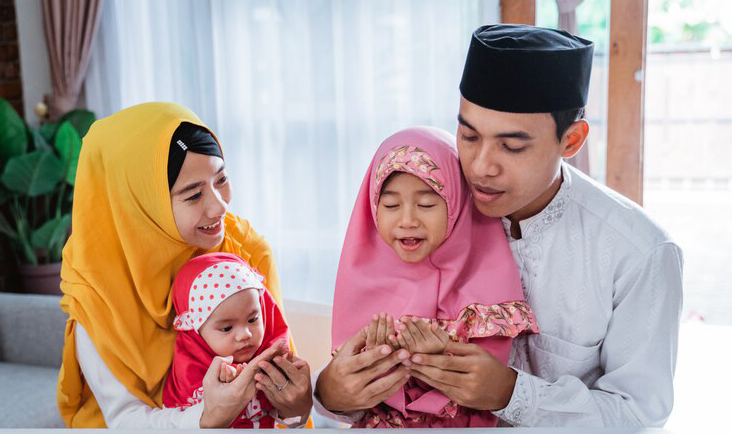“Did He not find thee an orphan, and gave thee a home? And found thee needy and fulfilled thy wants; Then wrong not the orphan; Nor repel the beggar with harshness; And proclaim the bounty of the Lord.”
The Quran
“Restore to the orphans when they come of age, their substance do not substitute bad for good nor devour their substance by adding it to your own, for this is an enormous crime”.
The Quran
Table of Contents
Introduction
Children are considered as messengers of God and it is the first and foremost duty of the parents to fulfill all the basic needs of a child and to provide proper nourishment to them for their overall development. A child below the age of 18 years is known as a minor and in case of absence or death of parents, guardianship takes place. Guardian is appointed by the parents as well as Courts for the sole intent i.e. welfare of the child. In Muslim law, there are different kinds of Guardians which we are going to discuss in the article.
Meaning & Definition Of Guardianship
A guardian is a person who is primarily responsible for a child’s health, basic needs, education, and other essential needs etc. In all personal laws Father is considered as a natural guardian and in his absence or at his death, the mother becomes the guardian of the child.
The term “Guardianship” is used when the legal custody of the child is with someone other than the child’s mother and father. The term ‘Guardian’ is defined in the Guardians and Wards Act as “a person having the care of the person of a minor or of his property, or of both his person and his property”.
Tahir Mohammad says- “Guardianship of a person in relation to a child belong primarily to its father, the mother’s being only a pre-emptive right to keep the father away for a legally prescribed period only from a particular aspect of the guardianship of person, namely, the custody and physical upbringing of the child”
Under Muslim Law, it is called HIZANAT. “Guardian” means legal authority and corresponding duty of a person to care for another person (a child, a disabled, an aged old, etc) relating to his body or property. A person under the protection of another is commonly known as ward. And the law of Guardianship is called Waliayat.
The Quran is the basis of the law relating to guardianship and, therefore, there is very little room for differences between Sunni and Shia Schools.
Appointment Of Guardians
Appointment By Courts
In the case of Bibi Saira Khatoon vs Mst. Bibi Shahidan Khatoon,1978, Patna the court laid down the following principles for appointing a person to be a guardian.
- In appointing or declaring the guardian of a minor, the Court shall be guided by what, consistently with the law to which the minor is subject, appears in the circumstances to be for the welfare of the minor.
- In considering what will be for welfare of the minor, the Court shall have regard to the age, sex and religion of the minor, the character and capacity of the proposed guardian and his nearness of kin to the minor, the wishes (if any) of deceased parent, and any existing or previous relations of the proposed guardian with the minor or his property.
- If the minor is old enough to form an intelligent preference, the Court may consider that preference.
- The Court shall not appoint or declare any person to be a guardian against his will.
Appointment under Guardians & Wards Act
Section 15(1) of the Guardians and Wards Act, 1890 permits for the appointment of joint guardian, where the Court has appointed joint guardian and if any one of them has died, the survivor continues to act as guardian.
However, under Section 19 of the Act says that in case the superintendence of the property of a minor has been assumed by a Court of wards under any local law in force then:
- The Court shall not be able to appoint a guardian of property under the Guardians and Wards Act.
- In case the Court has been empowered to appoint a guardian of person for the minor, the same cannot be done by a Court under the Guardians and Wards Act.
Similarly, State Governments are also empowered to appoint Court of Wards. The main aim of these courts is to constitute ward courts for the purpose of regulating, constitution, working and powers of the Court of Wards.
Sections 6, 19 and 21 of the Guardian and Wards Act provides that in the following matters, the courts should not interfere with the question of guardianship of a minor :
- Where a guardian of the minor’s person, property or both has been lawfully appointed under a will in accordance with the law to which the minor is subject.
- If a guardian is not performing his duties properly, the Court may remove him. Section 20 of the Guardians and Wards Act. 1890 imposes a duty on the guardian to deal with the ward’s property carefully and honestly.
- Section 21 of the above Act provides that a minor is not competent to act as guardian of another minor.
Removal Of Guardian
A guardian whether “De jure or De factory” is removable by the Court if it is necessary in the interest of the minor. The Court may on the application of any person interested, or on its own motion, remove a guardian appointed or declared by the Court, or a guardian appointed by will or other instrument, for any of the following causes :
- Abuse of his trust;
- Continued failure to perform the duties of his trust;
- Incapacity to perform the duties of trust;
- ill-treatment, or neglect to take proper care of his ward;
- Continuous disregard of any provision of the Guardians and Wards Act, or of any order of the Court;
- Conviction of an offense implying, in the opinion of the Court, a defect of character, which unfits him to be the guardian of his ward;
- Having an interest adverse to the faithful performance of his duties;
- Ceasing to reside within the local limits of the jurisdiction of the Court;
- In the case of a guardian of the property, for bankruptcy or insolvency;
- By reason of guardianship of the guardian ceasing or being liable to cease, under the law to which the minor is subject.
Duties Of The Guardian
Section 27 of the Guardianship & Wards act deals with the duties and the limitation on the powers of Guardians. The statutory Guardian of a property is required to deal with the minor’s property as a man of ordinary prudence would deal with his own property.
Sections 24, 25 and 26 of the Guardians and Wards Act provides for the custody of the child by one appointed under the Act as guardian of the person. It is his duty to look to the minor’s support, health and education, and such other matters as the law to which the ward is subject requires.
Other duties of the Guardians are:
- Duty to support– This is the duty of the guardian to support his ward. He should take full care of the health, education and such other matters as the law to which the ward is subject requires.
- Duty to defend- This is the duty of the guardian to take all necessary steps to protect an infant child. He can use force to defend his ward.
- Duty to file suits– This is the duty of the guardian to file a suit on behalf of the minor. Order 32 of the Civil Procedure Code says that, no person other than such guardian, shall act as the next friend of the minor or be appointed his guardian for the suit.
- Duty to arrange marriage– It is the duty of the guardian to make necessary arrangements for the marriage of his ward with the permission of the court.
- Right to control the acts of the ward– A guardian possesses the right to control the acts and conduct of the ward. The father of the minor also possesses the right to inflict correction on the child if he feels that the ward is not obeying his reasonable orders.
- Duty of the father to take charge– A father is the natural guardian. However, at the same time the mother of the child has been given the right to keep the child with her upto certain age. After crossing that age, the father of the child is bound to take proper care of the child.
- Duty of the Guardian not to use ward’s property– This is the duty of the guardian not to use ward’s property. This is his duty not to make any profit out of the property of the minor. A guardian is not expected to make profit by selling his own property to minors.
- Right of Pre-Emption– This is the discretion of the guardian to exercise or refuse to exercise the right of pre-emption on behalf of the ward.
- Duty to maintain proper accounts– This is the duty of the guardian to maintain proper accounts of all the receipts and expenditure incurred by him.
Cessation of the authority of the guardian
Section 41 of the Guardianship & Wards act says that a guardian appointed by the Court or a testamentary guardian shall cease to be guardian on the happening of any one of the following incidents:
- In the case of the death, removal or discharge of the guardian:
- On attaining majority by the minor.
- On the marriage of the female ward.
- Revival of original Guardianship right in whose disability another person has acted as the Guardian.
- By the Court of Wards Assuming superintendence of the person of the ward;
Comparison of Sunni & Shia Laws relating to the Guardianship
- In Sunni law, besides the father and true grandfather there are several relations who are guardians for marriage. However, under Shia Law, the only Guardians for marriage are the father and true grandfather.
- In Sunni law, marriage by Guardians other than father and grandfather may be repudiated after attaining majority. In Shia Law, marriage is wholly ineffective till it is expressly ratified.
- In Sunni law, a mother is the Guardian of the person of her son up to age of 7 years and of her daughter up to puberty. In Shia Law, a mother is Guardian of the person of her son up to age of 2 years and of her daughter up to age of 7 years.
- In Sunnis, the father is the natural guardian of a child and after the death of the father, the guardianship is passed to the executor. In Shias, the natural guardian is the father but after the death of the father, the guardianship is passed to the grandfather, if alive.
Conclusion
Guardianship under Muslim Law is an important aspect of personal laws, and it has been codified via legislation cover a period of time. The Guardians and Wards Act is a piece of legislation passed by Parliament that deals with guardianship rules and procedures in India.
Under Muslim law, Guardians are required for the purpose of marriage, for protecting the minor’s person and for protecting the minor’s property, as the minors are incapable to protect their own interests.



